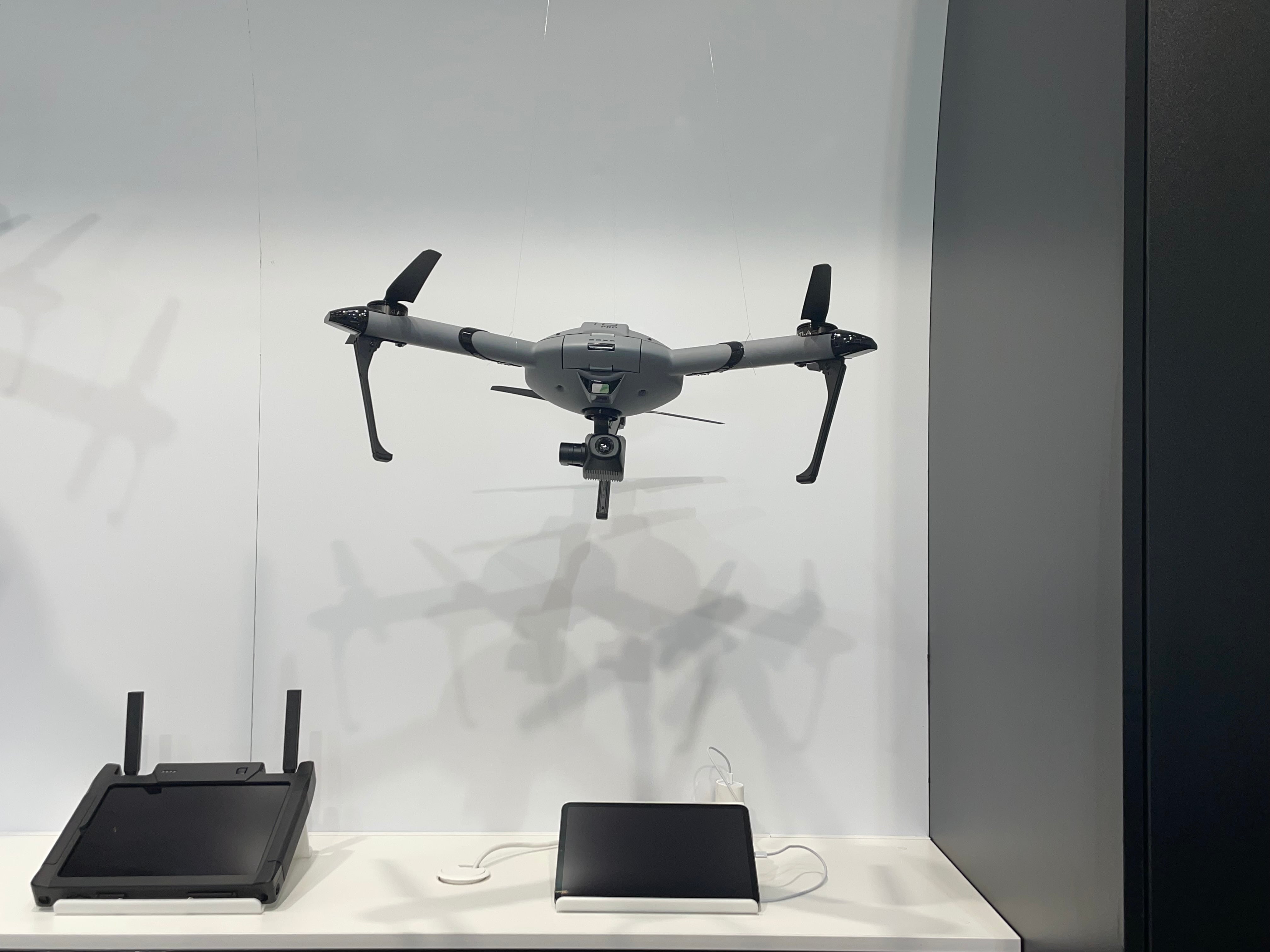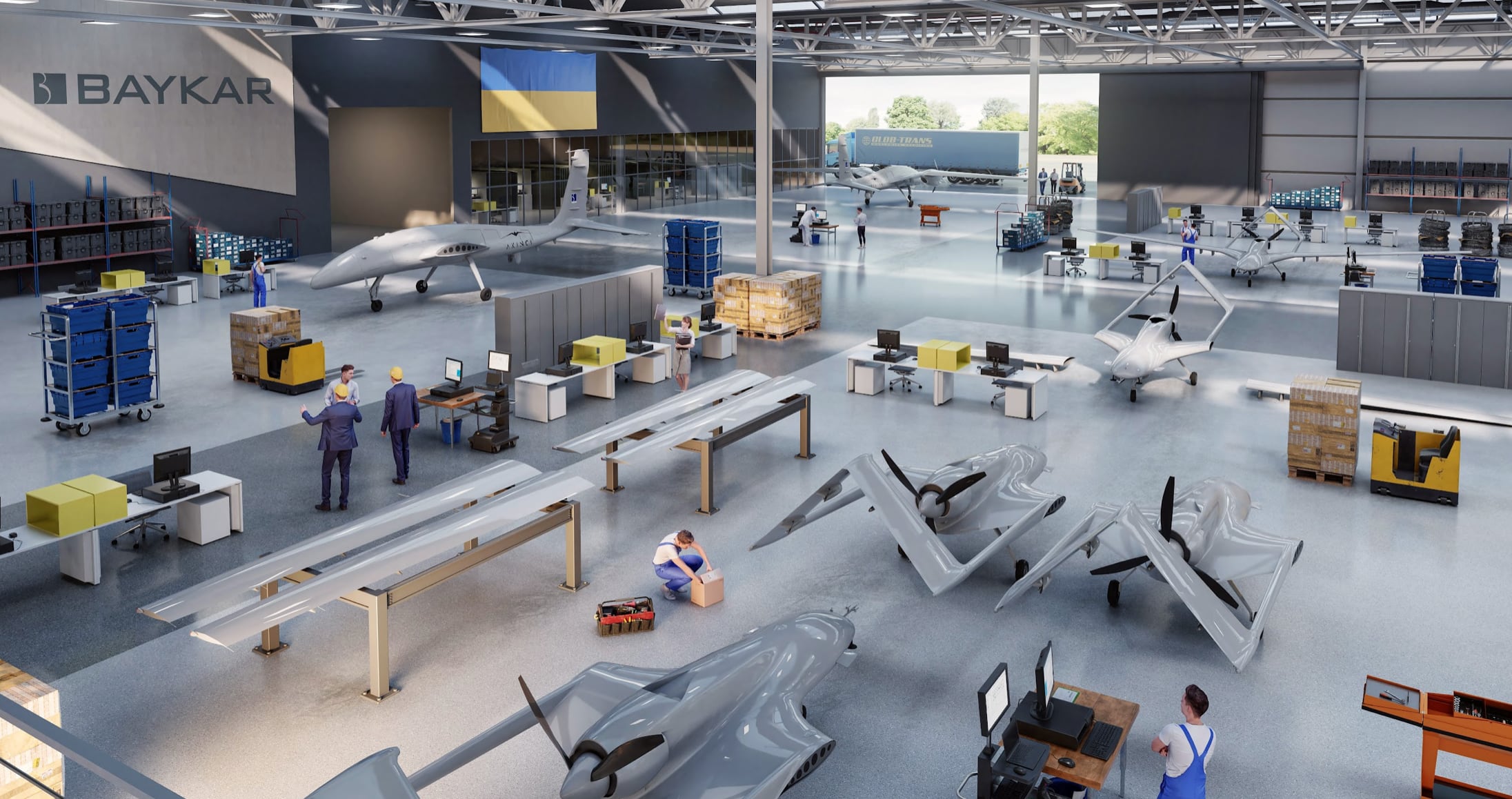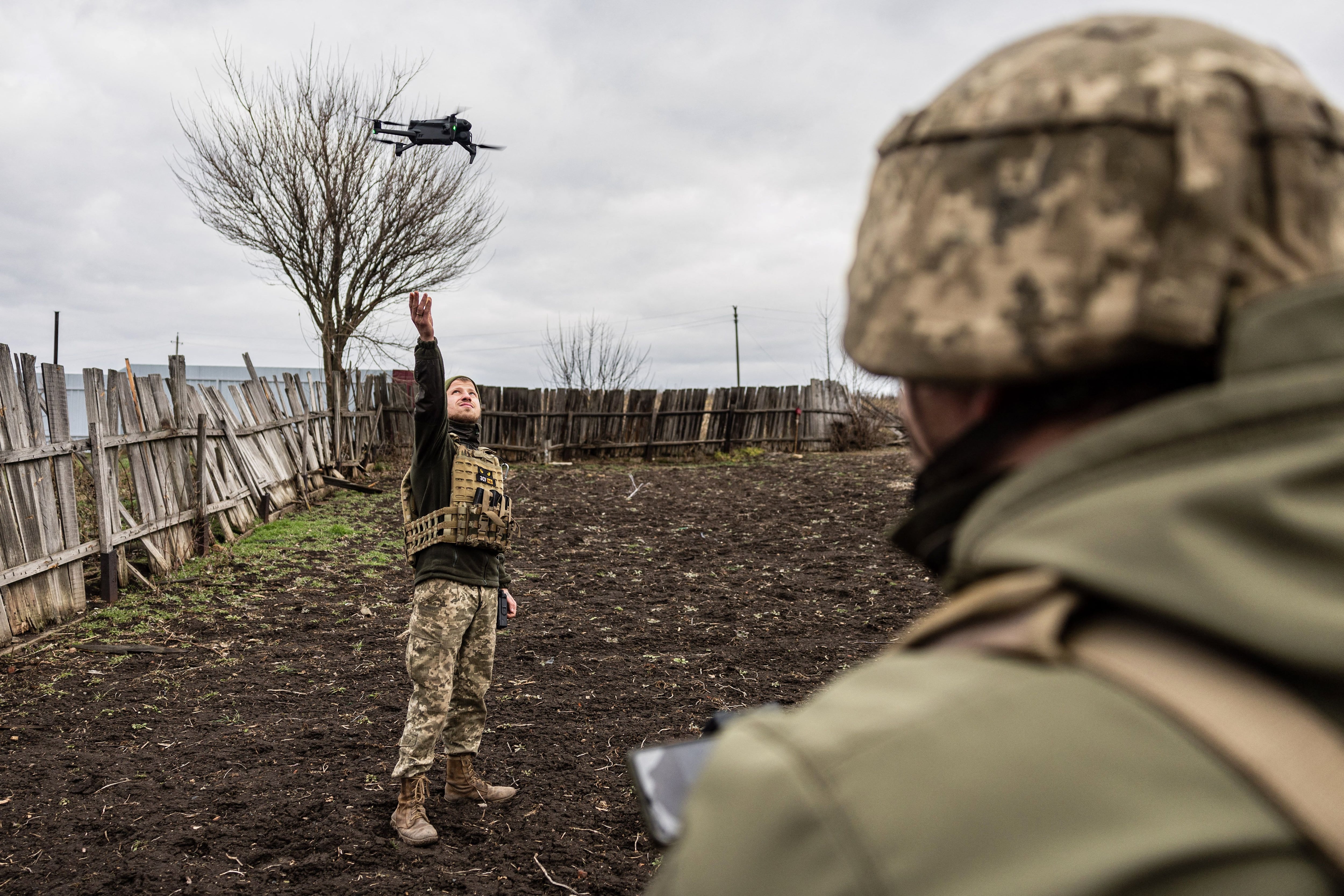PARIS — European drone manufacturers with plans to build production sites in Ukraine are reporting diverging ordeals, with Latvia-based Atlas now facing several delays as Turkish Baykar’s venture is moving on schedule, according to both companies’ chief executives.
Over the last year, several defense companies have warmed up to the possibility of setting up shop in the wartorn country to localize the production of some of their systems and get them to Ukrainian troops faster.
Among these is the Riga-based company Atlas, which manufactures small, packable aerial systems, namely the Atlas Pro tricopter. Late last year, chief executive officer Ivan Tolchinsky told Defense News about his ambition to establish a research and development factory as well as a production plant in Ukraine in early 2023.
However, not everything appears to be going according to plan.
“While we have effectively set up the R&D facility, the manufacturing one is undergoing some delays in part due to some bureaucratic processes and as such its opening date has been pushed back until we can sort this out,” Tolchinsky said on the sidelines of the Paris Air Show here.
The company still has kept up its frequent delivery rate of drones to Ukraine, with roughly 200 additional Atlas Pros provided since December. Currently, around 88% of its production is headed for Kyiv.The company is now developing new systems that will resemble “pocket drones” for soldiers, even smaller than the four-pond Atlas Pro, Tolchinsky said.
“They are still under development, but the idea would be to have an Atlas mini around 1 kilogram (2.2 pounds) and a micro-Atlas at 300 grams (0.66 pounds),” the he explained.

The company says that Ukrainian soldiers have reported Atlas Pros as being susceptible to jamming lately. For Tolchinsky, this is due in part to Russia upgrading its electronic warfare capabilities on the battlefield. His engineers have been working to evade electronic attacks by implementing software upgrades that would allow data to be transferred to the ground station faster without the Internet or cellular networks, Tolchinsky said.
Riding on political ties
Another firm with designs for a Ukrainian footprint is Turkish defense firm Baykar, which makes the medium-altitude long-endurance TB2 system.
Baykar’s chief executive Haluk Bayraktar first announced the news of a TB2 plant in October 2022, after having donated and delivered combat drones valued at millions of dollars to Ukrainian forces since the beginning of the war in February of that year. He told Defense News that the construction work on Baykar’s local subsidiary, LLC Avia Ventures, is moving as planned towards an opening date sometime in 2025.
“LLC Avia Ventures was first registered in Kyiv in 2019 and received earlier last year a license for the import-export of military products. It is one of the first and only companies so far in the country to have a foreign founder as part of its structure and a license for defense systems,” Bayraktar said.
“Much of the preparatory work is already being performed, with the site expected to already receive electricity come July,” he added.

The project was spurred through the signing of a framework of agreement in February 2022 between the governments of Ukraine and Turkey to cooperate in the aerospace industry. Defense News was given exclusive access to the document, whose purpose is to promote direct investments in the relevant field and create favorable conditions for technology transfer and use of production. It provides, in part, special tax and custom incentives for Turkish investors in the aerospace sector of Ukraine until January 2035.
Through its local entity, Baykar is further investing in Ukraine by building a center of excellence in UAS technologies, which involves a transfer of technology to localize the production of the company’s drones.
“We have received the appropriate license permits from Turkey to fully produce both Baykar’s TB2 and Akinci drones in Ukraine,” Baykar said. The planned total investment for the construction of these facilities is $95,5 million.
Elisabeth Gosselin-Malo is a Europe correspondent for Defense News. She covers a wide range of topics related to military procurement and international security, and specializes in reporting on the aviation sector. She is based in Milan, Italy.







